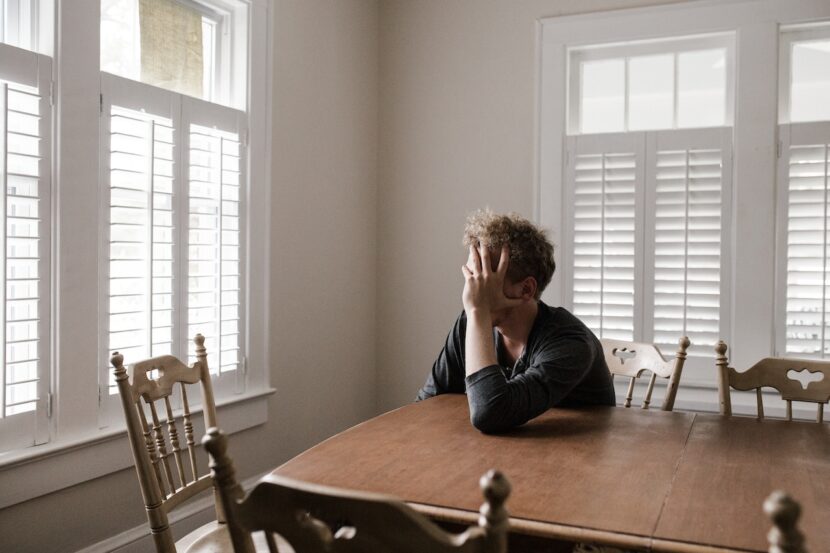If anxiety symptoms are negatively impacting your life and health, seeking assistance could be the key. Professional therapists can teach effective coping mechanisms and strengthen your ability to manage it effectively.
Kuhn often works with clients to identify what they can and cannot control, using an exercise where she draws a circle and asks clients to place all things they have control over in its center.
Licensed therapists can help you understand your anxiety
Anxiety counseling can provide individuals with tools to understand and overcome anxiety symptoms, including negative thought patterns and approaching situations that trigger them. Therapists can also offer practical advice like getting enough restful sleep and regular physical exercise as well as forgoing unhealthy coping mechanisms.
Modern treatments for anxiety disorders typically focus on reframing negative thoughts and teaching patients to replace them with more realistic ones. Cognitive behavioral therapy (CBT) teaches skills to lessen anxiety-provoking behaviors by identifying and challenging irrational fears – such as germs triggering a fear of illness.
Interpersonal therapy (IPT), with its focus on relationships, can be particularly helpful when treating social anxiety. IPT allows clients to understand their emotional needs and build healthy, supportive relationships while learning hypnotherapy techniques or mindfulness-based therapies like acceptance and commitment therapy (ACT). Hiring a qualified therapist with experience treating anxiety may also prove useful; BetterHelp or Talkspace offer online therapy options where qualified, licensed therapists may be found.
They can help you pinpoint your anxiety treatment focus
Therapists can help you identify the source of your anxiety. Though this may be challenging, understanding why anxious thoughts and behaviors occur is crucial to finding relief from anxiety. Reducing symptoms temporarily without treating the root issue may only serve to make things worse in the long run.
Cognitive behavioral therapy (CBT) is an increasingly popular therapy option for treating anxiety disorders. CBT involves confronting your fears in a safe and supportive environment while at the same time learning relaxation techniques such as progressive muscle relaxation or visualization from your therapist.
Your therapist can also assist in learning to identify negative self-talk that contributes to your anxiety. By replacing these unhealthy messages with healthier messages that promote calm and confidence, they may be able to assist. Social support and engaging in activities you enjoy may help keep the mind active; for example taking a walk or engaging in a hobby may provide relief from worries.
They can help you develop effective strategies
Feeling anxious can be a normal response to certain stressful events, like an important interview or life decision that requires your attention. But when your anxiety doesn’t dissipate once the event has ended, it could be a telltale sign that you have an anxiety disorder. Anxiety therapists provide strategies to cope with symptoms and alter negative thought processes so they become more reasonable over time.
Cognitive Behavioral Therapy (CBT) is often the treatment method of choice when treating anxiety disorders. CBT involves learning how to recognize and change negative thinking patterns that exacerbate fear; exposure therapy involving both imagined and real world exposure of trigger situations/stimuli may also be included as part of CBT treatments.
Dialectical Behavior Therapy (DBT), one form of therapy, helps individuals learn skills for managing anxiety and other mental health conditions as well as any relational challenges related to anxiety disorders. It may even provide assistance in dealing with relational struggles which often accompany such disorders.
They can help you set yourself up for success
Anxiety can be an enormously debilitating condition that threatens to take over your quality of life and destroy relationships. But many anxiety therapists offer strategies to help clients build healthy and satisfying relationships.
One of the key aspects of treating anxiety effectively is learning how to combat negative thinking patterns through cognitive behavior therapy, also known as challenging negative beliefs. You’ll learn ways to assess anxiety-inducing thoughts and unhelpful beliefs as well as ways to test reality by conducting experiments or weighing pros and cons to test fears more thoroughly. Therapists frequently employ strategies like conducting experiments or weighing pros and cons for this process.
At last, you will learn to replace anxious thoughts with realistic ones. For instance, if you suffer from contamination OCD (fears of germs), your therapist might ask you to touch objects that make you uncomfortable or teach you less frequent hand washing habits; or they could teach calming self-talk techniques when symptoms strike.

